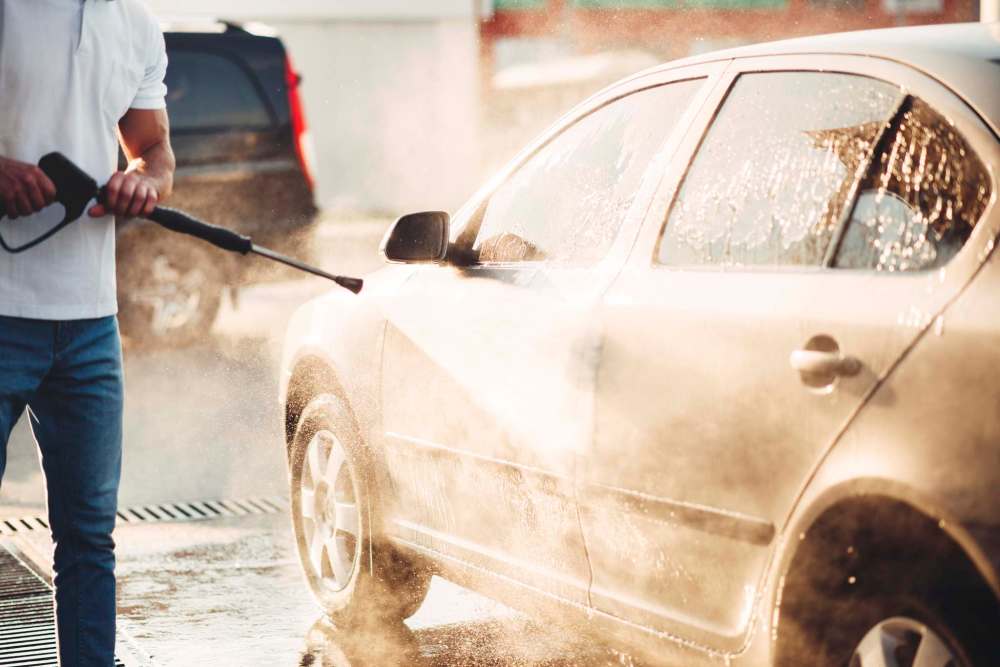The costs, benefits and dangers of pressure washing
What you need to know to get the job done right -- and safely
Advertisement
Read this article for free:
or
Already have an account? Log in here »
To continue reading, please subscribe:
Monthly Digital Subscription
$0 for the first 4 weeks*
- Enjoy unlimited reading on winnipegfreepress.com
- Read the E-Edition, our digital replica newspaper
- Access News Break, our award-winning app
- Play interactive puzzles
*No charge for 4 weeks then price increases to the regular rate of $19.00 plus GST every four weeks. Offer available to new and qualified returning subscribers only. Cancel any time.
Monthly Digital Subscription
$4.75/week*
- Enjoy unlimited reading on winnipegfreepress.com
- Read the E-Edition, our digital replica newspaper
- Access News Break, our award-winning app
- Play interactive puzzles
*Billed as $19 plus GST every four weeks. Cancel any time.
To continue reading, please subscribe:
Add Free Press access to your Brandon Sun subscription for only an additional
$1 for the first 4 weeks*
*Your next subscription payment will increase by $1.00 and you will be charged $16.99 plus GST for four weeks. After four weeks, your payment will increase to $23.99 plus GST every four weeks.
Read unlimited articles for free today:
or
Already have an account? Log in here »
Hey there, time traveller!
This article was published 27/10/2018 (2561 days ago), so information in it may no longer be current.
Pressure washing can instantly transform your deck, driveway or garage into a cleaner, more attractive version of itself. But before you hook up the hose and power up the machine for some fall cleaning, you’ll want to make sure you’re prepared to get the job done right — and safely.
With a pressure washer, you can clear away baked-on stains and stubborn spills from nearly any outdoor surface. Layers of buildup will disappear, revealing the original beauty, color and potential of your home’s exterior.
Tackles nooks and crannies: A pressure washer can get into difficult spots like cracks, corners, gutters and overhangs.

When done annually, pressure washing can clear areas where you might need to perform further maintenance. It will offer a better view of surface damage and remove grime so that you can stain the backyard deck or seal the garage floor.
Considering the instant benefits of this task, you might consider it a simple DIY project. However, even the lightest-duty equipment puts out a dangerous level of pressure. In the hands of the inexperienced, that pressure can cause serious property damage and bodily harm. Operating your washer on the wrong setting, with the wrong cleaning solution or too close to the surface can turn small slip-ups into costly repair projects. Worse, it could send you or a loved one to the hospital with significant injuries.
If you were to tackle pressure washing yourself, you would need to keep a few things in mind aside from safety and damage: preparation, capacity and cost.
Preparation: Removing debris, covering doors, closing windows and moving outdoor furniture takes time and may require physical effort —as well as the use of ladders and other equipment.
Capacity: Whether you’re cleaning two stories of vinyl siding or the grime on a garage floor, you’ll need to choose the power washer that best suits your job. Pressure washers offer varying degrees of power and versatility. So, it’s important to consider factors such as pressure (PSI), flow (GPM) and compatibility with different types of cleaning fluids.
Cost: Purchasing an electric washer can run you anywhere from $100 to $200, while gas-powered washers generally cost between $300 to $800. On the other hand, hiring a professional typically costs between $150 and $350.
Given the cost to purchase a pressure washer — coupled with the amount of time it takes to complete the job and the dangers it entails —many homeowners find it’s worth the cost to hire a professional.
Not only will a quality pro have the equipment and expertise necessary to clean the surface safely and effectively, but their services are typically affordable.
Helpful tips:
Do:
Know which cleaning solutions are recommended for each surface you’re spraying.
Wear protective eyewear, clothing and shoes at all times.
Follow all safety protocols when working with washers, ladders and other equipment.
Consult a pro to avoid mishaps and make sure the job is done right the first time.
Don’t:
Operate your pressure washer near people or pets at any time.
Stand too close when spraying any surface, as debris and damage can result.
Use pressure washers without first consulting instructions and safety warnings.
Work on roofs or high places without taking the proper precautions.
— Home Advisor

